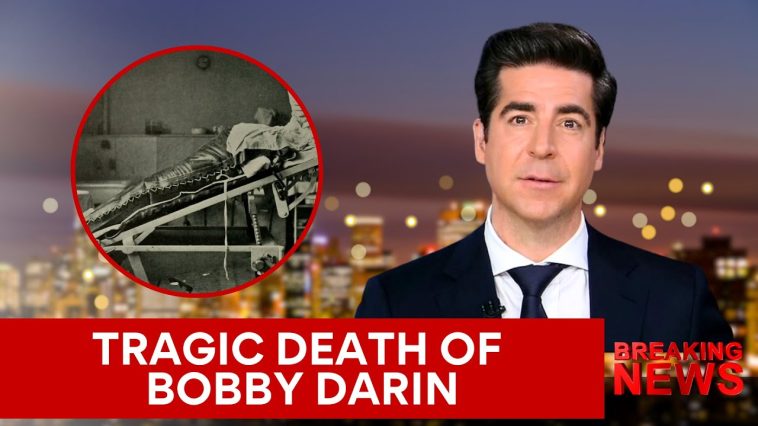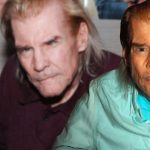Bobby Darin, the iconic American singer, songwriter, and actor. He left an indelible mark on the world of entertainment during his tragically short life. He’s famous for his captivating performances and hit songs, Darin’s career marks by versatility and innovation. Many are familiar with his chart-topping hits like “Mack the Knife” and “Dream Lover”. There are countless aspects of his life and career that remain lesser-known to fans and admirers.
From his childhood battles with health issues to his foray into folk music and activism during the 1960s, the story of Bobby Darin is one of determination, creativity, and a relentless pursuit of success in the face of adversity. In this video, we delve deeper into the life and legacy of Bobby Darin, shedding light on the lesser-known facets of his remarkable journey. Join Facts Verse, as we present: Bobby Darin’s Cause of Death Was More Tragic Than You Were Told
Early Life
Bobby Darin, born Walden Robert Cassotto on May 14, 1936, was an American singer, songwriter, and actor. He made a significant impact on the music industry during the 1950s and 1960s. His early life marks by adversity and a relentless pursuit of success.
Darin was born in the Bronx, New York, to a working-class Italian-American family. He faced health challenges from an early age, suffering from rheumatic fever, which left him with a weakened heart. This health condition gave him a sense of urgency to achieve his dreams and make the most of his life. But he was unsure how long he would live.
Despite his health issues, Darin was a naturally gifted musician and performer. He began singing in local clubs in the Bronx and Harlem while still a teenager. Inspired by his idol, Frank Sinatra, Darin adopted a smooth and charismatic style that endeared him to audiences. He was not only a talented vocalist but also an accomplished self-taught musician. He plays several instruments, including guitar, piano, and drums.
“Splish Splash” In 1958
In the late 1950s, Bobby Darin’s career began to gain traction. He signed a record deal with Atlantic Records and released his first hit single, “Splish Splash,” in 1958. The song’s catchy lyrics and upbeat tempo quickly made it a chart-topping hit. Darin’s next hit, “Dream Lover,” further solidified his status as a rising star.
One of the defining moments of Darin’s early career was his performance at the Copacabana nightclub in New York City in 1959. This successful engagement helped catapult him into the mainstream, and he soon became a sought-after entertainer in the music industry. His talent was not limited to singing; he also began acting in films and television shows, including “Come September” and “Gidget.”
Bobby Darin’s versatility as a performer allowed him to explore various musical genres, from rock and roll to pop to swing and even folk. He continued to release chart-topping hits, including “Mack the Knife”. Then, he won him the Grammy Award for Record of the Year in 1960. Darin’s career marks by innovation and a tireless work ethic. He constantly pushed the boundaries of his musical abilities and was known for his dynamic stage presence. His music and style evolved over the years, reflecting the changing trends of the 1960s and his own personal growth as an artist.
Career Highlights
Bobby Darin’s career was filled with a remarkable array of highlights that showcased his immense talent and versatility as an entertainer. He burst onto the music scene in the late 1950s with infectious hits like “Splish Splash” and “Dream Lover,” establishing himself as a dynamic singer with a charismatic stage presence. In 1959, he achieved the pinnacle of his career when he won the Grammy Award for Record of the Year for his rendition of “Mack the Knife,” a song that remains one of the most iconic performances in music history. Darin’s transition to acting was equally noteworthy, earning critical acclaim for his roles in films like “Captain Newman, M.D.” (1963) and “Pressure Point” (1962). His residency at the Sands Hotel in Las Vegas during the 1960s solidified his status as a premier live performer.
One of Bobby Darin’s enduring legacies was his ability to adapt to changing musical landscapes. In the 1960s, he shifted his style, embracing folk and protest music, exemplified by albums like “Bobby Darin Sings Doctor Dolittle” (1967). His commitment to social justice was evident as he participated in the 1963 March on Washington for Jobs and Freedom alongside Dr. Martin Luther King Jr. Furthermore, Darin’s entrepreneurial spirit led him to establish his own record label, Direction Records, and music publishing company, TM Music, enabling him to exercise greater creative control over his work. Despite facing health challenges, he continued performing, leaving audiences enthralled with his unforgettable live shows. Bobby Darin’s career was defined by innovation, activism, and an enduring commitment to artistic excellence, cementing his legacy as one of the most influential and beloved entertainers of his era.
His Final Years And Death
Bobby Darin’s final years were marked by a mix of personal and professional endeavors, health struggles, and an unwavering commitment to his craft. His determination to live life to the fullest, despite facing a serious heart condition, defined this period of his life.
Health Challenges
Throughout his life, Bobby Darin battled a heart condition that stemmed from childhood rheumatic fever. This condition led to weakened heart valves and ultimately required him to undergo multiple heart surgeries. Despite his health struggles, Darin maintained a relentless work ethic and continued to perform, record, and pursue his career.
Change in Musical Direction
In the late 1960s, Darin underwent a musical transformation, shifting away from the pop and rock styles that had characterized his early career. He ventured into folk and protest music, releasing albums like “Bobby Darin Sings Doctor Dolittle” (1967) and “Born Walden Robert Cassotto” (1968). These albums featured songs with socially conscious themes, reflecting his commitment to addressing important issues through his music.
Personal Life
In 1966, Bobby Darin divorced his wife, actress Sandra Dee, after a tumultuous marriage. The divorce had a profound impact on his personal life, but he remained dedicated to his son, Dodd, with whom he maintained a close relationship.
Entrepreneurial Ventures
Darin was not only a performer but also a shrewd businessman. He established his own record label, Direction Records, to exercise greater control over his music and support emerging artists. His music publishing company, TM Music, further diversified his interests.
Final Performances
Despite his deteriorating health, Darin continued to perform live. His shows were marked by an unyielding commitment to his audience and a passion for entertaining. His final public performance took place at the Waldorf Astoria Hotel in New York City on December 11, 1972.
Heart Surgery
In early 1973, Bobby Darin’s health took a turn for the worse. He underwent open-heart surgery to address complications related to his heart condition. The surgery was performed by Dr. Denton A. Cooley, a renowned heart surgeon. Darin’s recovery was initially promising, and he made plans for a comeback tour.
Sudden Death
Tragically, on the night of December 19, 1973, just days before he was set to embark on his comeback tour, Bobby Darin died in Los Angeles, California. He was only 37 years old. The cause of death was determined to be a heart infection that had spread to his artificial heart valves, a complication of his earlier surgeries. Bobby Darin’s untimely death was a shock to his fans and the entertainment world. It marked the end of a remarkable career and the life of an artist who had left an indelible mark on the music industry. Despite his relatively short life, Darin’s contributions to music, activism, and entrepreneurship continue to be celebrated, and his legacy endures through his timeless songs and the impact he made on the world around him.
Bobby Darin’s untimely death was a shock to his fans and the entertainment world. It marked the end of a remarkable career and the life of an artist who had left an indelible mark on the music industry. Despite his relatively short life, Darin’s contributions to music, activism, and entrepreneurship continue to be celebrated, and his legacy endures through his timeless songs and the impact he made on the world around him.
Romantic Life
Bobby Darin’s romantic life was marked by high-profile relationships and a tumultuous marriage. One of the most significant aspects of his personal life was his marriage to actress Sandra Dee, as well as their shared parenthood. Here are the details of Bobby Darin’s romantic relationships and his family life: Bobby Darin’s most famous romantic involvement was with Sandra Dee, an actress who was a Hollywood sweetheart during the 1960s.
Darin and Dee met in 1960, and their whirlwind romance captured the attention of the media. They married on December 1, 1960, in a high-profile ceremony. The couple became one of the most celebrated couples of their time, often referred to as “Bobby and Sandra.” Bobby and Sandra Dee had one child together, a son named Dodd Mitchell Darin, born on December 16, 1961. Dodd was the apple of his parents’ eyes and was raised in the spotlight of the Hollywood world.
Co-Parenting
Despite their eventual divorce, both Bobby and Sandra remained dedicated to their son, and they co-parented him with great care. Unfortunately, the marriage between Bobby Darin and Sandra Dee faced challenges, and they divorced in 1967. The split was marked by personal difficulties and disagreements, but they both continued to prioritize the well-being of their son, Dodd. After his divorce from Sandra Dee, Bobby Darin had other romantic relationships, but none achieved the same level of public attention. His focus shifted more toward his career and activism during this period.
Bobby Darin’s marriage to Sandra Dee and their shared parenthood of Dodd Darin remains one of the most prominent aspects of his romantic life. Despite the challenges they faced in their personal relationship, both Darin and Dee remained devoted parents to their son, and their love for Dodd endured throughout their lives.
Now it’s time to hear form you. What’s your favorite memory of Bobby? Let us know in the comments section below!




